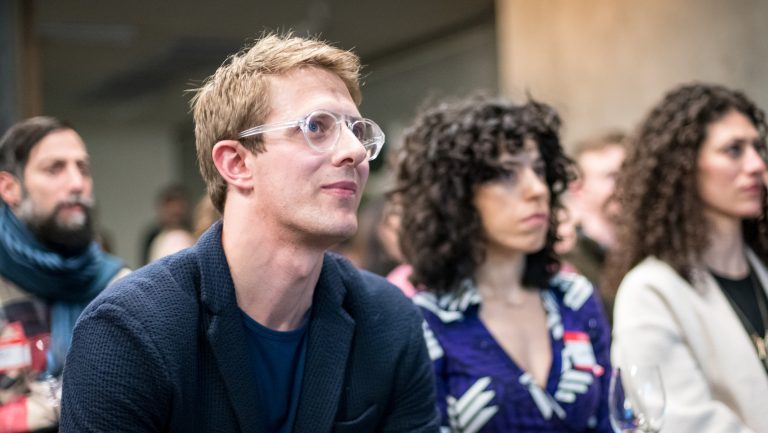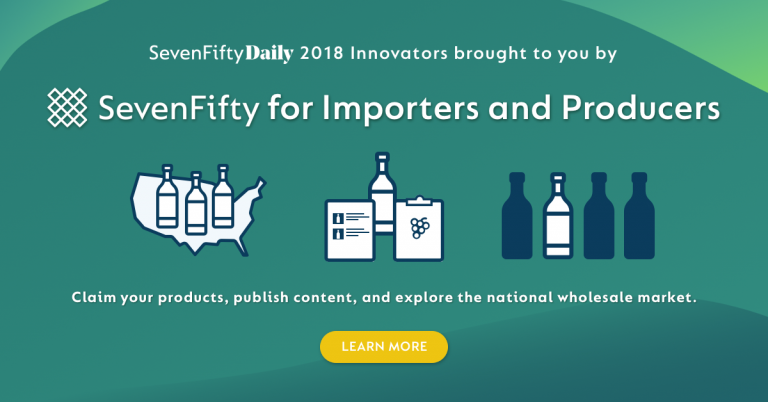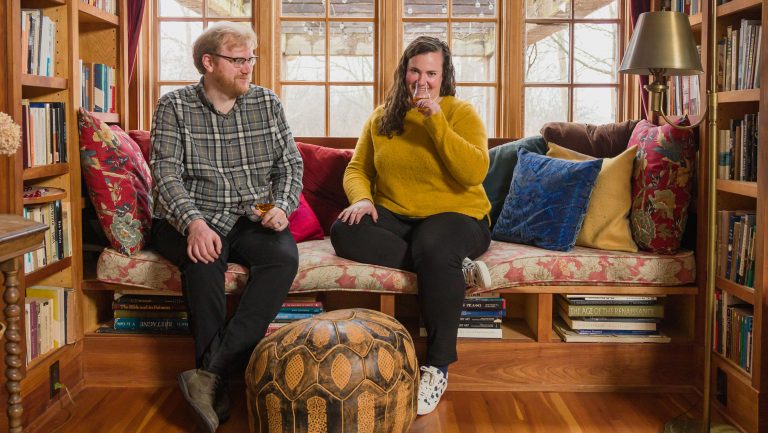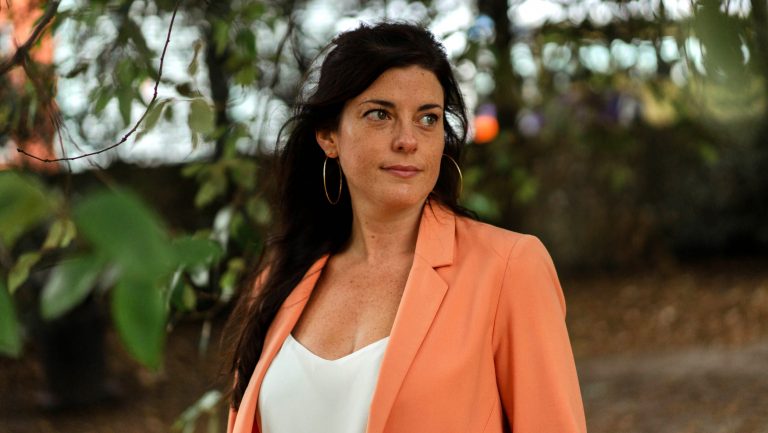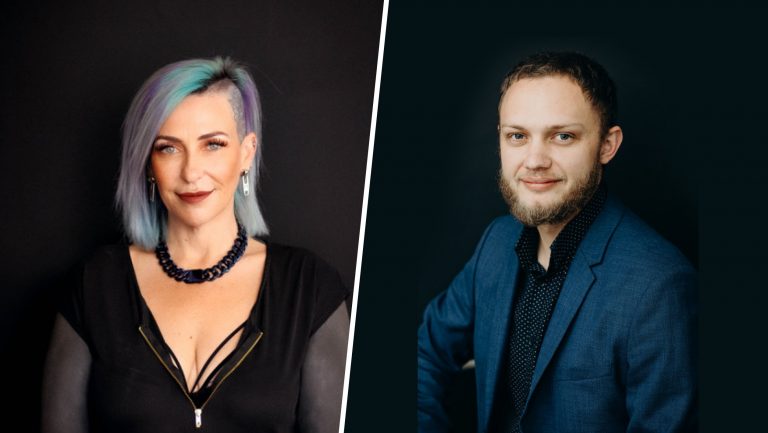After five years spent working in front-of-house and sommelier positions in top New York City restaurants, including Eleven Madison Park and The NoMad, Peter Weltman experienced something of a personal wine crisis in 2016. While participating in the ROI Community Summit, an annual networking event for young members of the Jewish community hosted by the Charles and Lynn Schusterman Foundation, Weltman was surrounded by innovative thinkers discussing the world’s major issues. But sitting there, as the token “wine guy” at the conference, Weltman found himself wondering: Does wine really matter?
This moment of self-reckoning sent him on a journey to often underrepresented corners of the wine world, including the Balkans, Turkey, Israel, and Mexico, and inspired his idea of Borderless Wine. Weltman realized he could give a voice to wine regions where the global economy is having a negative effect on the livelihoods of people making high-quality wines—and play a role in helping them preserve long-held traditions. His philosophy: Wine buying can actually be a form of activism.
Building a Platform for Wine Activism
Today, Weltman is bringing more of the wine industry into the conversation by using his Borderless Wine platform to help wineries cross real and imagined borders to find a broader audience. His endeavors are threefold: First, he’s publishing stories about these wines and regions in a number of publications (including SevenFifty Daily). Second, he launched two Borderless Wine Symposiums this year, in San Francisco and New York, with five importers representing 20 wines from nine countries. And soon, his new company, Borderless Wine Alliance, will import into the U.S. its first wine, from a small producer in Mexico.

Don’t miss the latest drinks industry news and insights. Sign up for our award-winning newsletters and get insider intel, resources, and trends delivered to your inbox every week.
The whole endeavor started in 2016, when he returned to Israel, where he had lived for a year between high school and college. He found that an Israeli winery, Recanati, was making wines from local grapes grown by a Palestinian farmer in the West Bank. Says Weltman, “They celebrated the fact that it was a cross-border collaboration.”
He dug further into the West Bank. “As an American Jew,” Weltman says, “I was in my comfort zone with wine, but so outside my comfort zone there otherwise.” He encountered Cremisan Winery, a Palestinian producer working with native grapes like Dabouki and Baladi. Cremisan may well have provided the launchpad for Weltman’s Borderless Wine concept. The winery, which is owned by the Salesian religious order, has a long history—grapes have been harvested there since 1885—but its location in a country with ceaseless political and economic instability has hampered its recognition internationally. Weltman found out that Cremisan’s wine sales not only support its 16 full-time employees but sustain a school and an orphanage that the Salesian owners run in Bethlehem.
Intrigued by the influence of wine on the stability of marginalized countries, Weltman cites something Lisa Granik, MW, told him when the two visited the Republic of Georgia in 2015. Granik, who has researched Georgia extensively with funding from two Fulbright scholarships, said that each bottle of Georgian wine sold brings the country closer to economic independence. “Increased exports of Georgian wine to a more diversified market in the past seven years,” Granik said, “have allowed the government to cease providing subsidies to farmers.” This affects not only the growers who make their own wine, she said, but the ones who sell their grapes to larger companies.
In Turkey, preventive governmental action against alcohol, as well as low salaries, make it difficult for locals to purchase wine. “[But] when a consumer abroad can support these small, quality-minded wineries,” says Nicole Hakli, the wine director of Momofuku Ssäm Bar, “they are helping to develop and preserve the history of Turkish wine.”
Hakli, who spoke about these wines at Weltman’s Borderless Wine Symposium in New York in August, became interested in the country’s wine culture while visiting her Turkish husband’s family, who live along the country’s coast, in Antalya. She soon discovered Turkey’s wealth of native grape varieties, ancient soils, and long history of winemaking. Hakli calls producers like Paşaeli and Vinkara, who focus on preserving local grape varieties, “a glimmer of hope” amid the struggle to develop an economically strong wine region.
Weltman’s work is helping empower not only producers to move beyond borders, but importers in the U.S. to do so as well. Cremisan’s importer, Jason Bajalia of Terra Sancta Trading, says that Weltman has given him the confidence and resources to market wines like those from Cremisan to higher-level buyers. “Prior to this collaboration,” he says, “I used to ‘stay in my lane’ of marketing to Mediterranean-focused buyers, but now I’ll go anywhere, and it has really benefited my business.”
Under the banner of Borderless Wine Alliance, Weltman and Bajalia are together beginning to import wines that align with the borderless mission, starting with those of La Casa Vieja, a small producer making low-intervention wine from old vines in Baja, Mexico.
The Borderless Wine Symposiums were designed to bring these largely unknown wineries to the forefront by initiating conversations among wine professionals, enthusiasts and producers. Even the setup of the events was designed to spark dialogue: In New York, rather than snaking through a room full of winemakers behind tables, attendees were encouraged to mingle, cocktail party–style, before sitting down for a more formal speaker series. Wine representatives wandered the floor in a setting of “controlled chaos” (Weltman’s words), pouring tastes of sparkling Kalecik Karası from Turkey and organic Limnio from Greece. Weltman’s goal was to place the wineries and presenters at the same level as the attendees, bringing these little-known regions and grapes into the circle rather than keeping them on the periphery.
While the industry has become more curious about more diverse grapes and regions, an elitist perspective persists that favors traditional wine countries. Even journalists who encourage open-minded wine drinking among their readers, like the New York Times wine critic Eric Asimov, encountered wines that were entirely new to them at the symposium. “I applaud Peter [not only] for encouraging exploration of little-known wines,” Asimov wrote in an email, “but for fervently investigating the farthest reaches of the wine world and the people working these edges, often with little recognition or reward.”
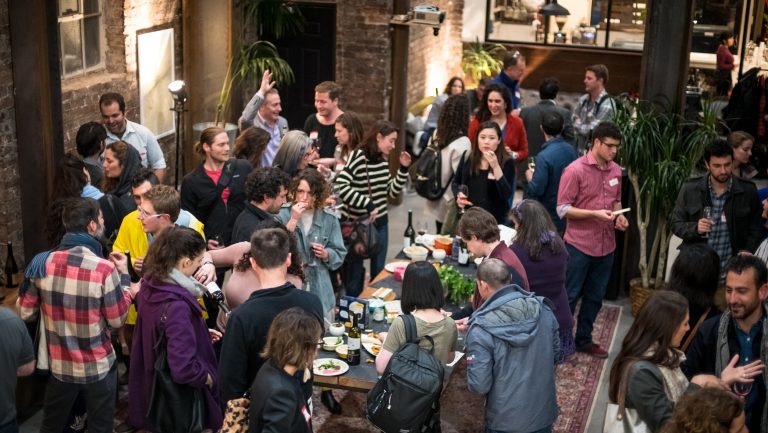
Adopting a Borderless Ethos
Weltman isn’t alone in his mission to expand minds when it comes to perceptions of wine. He joins a handful of writers, importers, and buyers who have taken underappreciated wine regions and varieties under their wing, believing in their hidden potentials. “Occupations, wars, iron curtains, failed governments and revolutions, and the like often take away just about everything from people,” says Eric Danch, the California-based sales manager of the Central European import specialist Blue Danube Wine and the keynote speaker at Borderless Wine’s San Francisco symposium, “but rarely their food and wine traditions.”
These old-school traditions and methods are what have intrigued proponents of lesser-known winemaking countries in Central Europe and the Middle East over the past decade. The Republic of Georgia has seen particular interest. In addition to Granik’s work there, the natural wine specialist and writer Alice Feiring celebrated the country’s wines in her book For the Love of Wine, and subsequently became an advocate for the country’s wine culture.
Celebrating the wine, beer, and spirits professionals who are moving the drinks industry forward
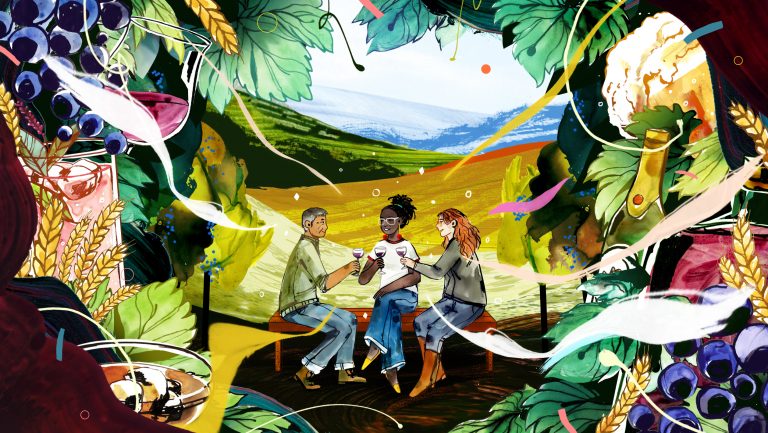
SevenFifty Daily’s 2018 Drinks Innovators
Also, a number of importers, especially those in the realm of natural wine, have made these underrepresented places a focus of their work. Eklektikon was founded in 2011 to promote native Greek varieties, Jenny & François has gathered a strong collection of Czech Republic producers within its portfolio, and Palinkerie has promoted Hungary’s wines through its entirely Hungarian portfolio since 2014. Even if wines from France, Italy, and Spain still wildly outnumber those from Croatia and Greece at retail shops and in restaurants, grapes like Furmint and Assyrtiko are no longer unknown, which is a start.
Though Borderless Wine focuses on Central European and Middle Eastern countries for the most part, it’s also exploring emerging regions stateside. Deirdre Heekin of La Garagista, who spoke at the New York symposium, along with fellow Vermont winemaker Krista Scruggs of Zafa Wines, thinks that Vermont perfectly represents the Borderless ethos. “I’ve always loved the idea of the fringe,” she says, “and working in a burgeoning wine region like Vermont truly embraces the notion of fringe.” Heekin’s work to bring respect to native hybrid grapes like Marquette and La Crescent exemplifies the borderless concept. “Native grapes speak to an ancient history,” Weltman notes, “and a contemporary one of a border that seems impenetrable.”
While adopting a borderless wine-drinking philosophy was a game-changer for Weltman, as he hopes it will be for others in the wine industry, he sees a value in drinking borderlessly for the general public as well. “These things seem trivial, but they really do add up,” he says. “If you do just one thing to open yourself up, then you are really open to the world.”
Read our Q&A with Peter Weltman.

Dispatch
Sign up for our award-winning newsletter
Don’t miss the latest drinks industry news and insights—delivered to your inbox every week.
Courtney Schiessl Magrini is the editor-in-chief for SevenFifty Daily and the Beverage Media Group publications. Based in Brooklyn, she has held sommelier positions at some of New York’s top restaurants, including Marta, Dirty French, and Terroir, and her work has appeared in Wine Enthusiast, GuildSomm, Forbes.com, VinePair, EatingWell Magazine, and more. She holds the WSET Diploma in Wines. Follow her on Instagram at @takeittocourt.

